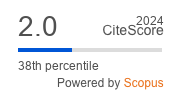Psychosocial status of childhood cancer survivors who develop one or more secondary malignancies
Keywords:
Childhood, Secondary malignancy, Psychological evaluation, Socioeconomic statusAbstract
Objective. Childhood cancer survivors can develop physical, emotionaland psychosocial adversities, a secondary malignancy (SM) beingone of the most serious among them. Th e aim of our research was tostudy whether the development of SM was related to the psychosocialfunctioning of survivors, especially whether any psychic trauma fromthe fi rst experience would be aggravated by SM. Patients and methods.Seventy – fi ve childhood cancer survivors with SM were matched with75 survivors who did not develop SM, by sex, age, living enviroment,diagnosis, year of diagnosis and treatment of the fi rst malignancy. Th eywere compared regarding education, employment, marital status and,in the 35 women, childbirth data. Seventeen childhood survivors withan SM had had psychological evaluations at diagnosis of both theirfi rst and secondary cancers; the results of the two were compared. Results.Th ere were no diff erences in the schooling, education, social,marital status or birth specifi cs between survivors with SM and theircontrols, nor were there marked diff erences in measures of social orpsychological status. Conclusions. Th e socioeconomic status of these75 subjects was not found to be related to the development of SM. Psychologicalevaluations showed no marked diff erences between thoseconducted aft er the fi rst and the secondary malignancies.References
Oeffi nger KC, Mertens AC, Sklar CA, Kawashima T, Hudson MM, Meadows AT, et al. (Childhood Cancer Survivor Study). Chronic health conditions in adult survivors of childhood cancer. N Engl J Med. 2006;355(15):1572-82.
Jereb B. Model for long-term follow–up of survivors of childhood cancer. Med Pediatr Oncol. 2000;34:256-8.
Skinner R, Wallace WH, Levitt GA. Long–term follow-up of people who have survived cancer during childhood. Lancet Oncol. 2006;7:489-48.
Frobisher C, Lancashire ER, Winter DL, Stevens MCG, Hawkins MM; British Childhood Cancer Survivor Study. Long-term population-based divorce rates among adult survivors of childhood cancer in Britain. Pediatr Blood Cancer. 2010;54:116-22.
Friderick PL, Rochelle Stone BS. Survivors of Cancer Childhood. Ann Intern Med. 1976;84:551-3.
Svetičič J, Marušič A, Jereb B. Are among childhood cancer survivors depression and suicidal behavour more frequent? Onkologija. 2006;10:75-80.
Recklitis CJ, Lockwood RA, Rothwell MA, Diller LR. Suicidal ideation and attempts in adult survivors of childhood cancer. J Clin Oncol. 2006;24: 3852-7.
Schulte F, Barrera M. Social competence in childhood brain tumor survivors: a comprehensive review. Support Care Cancer. 2010;18:1499-513.
O’Leary TE, Diller L, Recklitis CJ. Th e eff ects of response bias on self-reported quality of life among childhood cancer survivors. Qual Life Res. 2007;16:1211-20.
Taylor N, Absolom K, Michel G, Urguhart T, Gerrard M, Jenkins A, et al. Comparison of selfreported late eff ects with medical records among survivors of childhood cancer. Eur J Cancer.
;46:1069-78.
McDougall J, Tsonis M. Quality of life in survivors of childhood cancer: a systematic review of the literature (2001-2008). Support Care Cancer. 2009;17:1231-46.
Sundberg KK, Doukkali E, Lampic C, Eriksson LE, Arvidson J, Wettergren L Long-term survivors of childhood cancer report quality of life and health status in parity with a comparison group. Pediatr Blood Cancer. 2010;55:337-43.
Zeltzer LK, Recklitis C, Buchbinder D, Zebrack B, Casillas J, Tsao JC, et al. Psychological status in childhood cancer survivors: a report from the Childhood Cancer Survivor Study. J Clin Oncol. 2009;27:2396-404.
Meyers CA, Perry JR Cognition and Cancer. Cambridge University press, Cambridge, UK; 2008.
Jereb B, Korenjak R, Kržišnik C, Petrič-Grabnar G, Zadravec-Zaletel L, Anžič J, et al. Late sequelae in children treated for brain tumors and leukemia. Acta Oncol. 1994;33:159-64.
Macedoni-Lukšič M, Jereb B, Todorovski L. Longterm sequelae in children treated for brain tumors: impairments, disability, and handicap. Pediatr Hematol Oncol. 2003;20:89-101.
Zadravec-Zaletel L, Bratanič N, Jereb B. Gonadal function in patients treated for leukemia in childhood. Leuk Lymphoma. 2004;45:1797-802.
Kveder R, Jereb B, Dremelj M. Late consequences on renal function in long term childhood cancer survivors. Pediatric Blood & Cancer. 2006;47:495-6.
Velenšek V, Mazić U, Kržišnik C, Demšar D, Jazbec J, Jereb B. Cardiac damage aft er treatment of childhood cancer: a long-term follow-up. BMC Cancer. 2008;8:141.
Jazbec J, Todorovski L, Jereb B. Classifi cation tree analysis of second neoplasms in survivors of childhood cancer. BMC Cancer. 2007;7:1-6.
Bürger-Lazar M, Jereb B. Personality of childhood cancer survivors. Med Pediatr Oncol. 2000;35:316.
Bender L.A. visual motor gestalt test and its clinical use. American Orthopsychiatric Association, Research Monographs (No. 3), New York; 1938.
Bender L. Instructions for the use of the Visual-Motor Gestalt Test. American Orthopsychiatric Association, New York; 1946.
Exner JE, Erdberg P. Th e Rorschach-A Comprehensive
System, Volume 2, Advanced Interpretation, 3rd edn. Wiley, New York; 2005.
Wechsler D. Th e Measurement of Adult Intelligence. Williams & Witkins, Baltimore, MD; 1939.
Plutchik R. Th e circumplex as a general model of the structure of emotions and personality. In: Plutchik R, Conte HR (eds). Circumplex models of personality and emotions. American Psychological Association, Washington DC; 1997. p. 17-45.
Statistical Offi ce of the Republic of Slovenia [Internet]. Available from: http://www.stat.si/eng/index.asp
Lancashire ER, Frobisher C, Reulen RC, Winter DL, Glaser A, Hawkins MM. . Educational attainment among adult survivors of childhood cancer in Great Britain: a population-based cohort study. J Natl Cancer Inst. 2010;102:254-70.
Green DM, Zevon MA, Hall B. Achievement of life goals by adult survivors of modern treatment of childhood cancer. Cancer. 1991;67:206-13.
Robison LL, Green DM, Hudson M, Meadows AT, Mertens AC, Packer RJ, et al. Long-term outcomes of adult survivors of childhood cancer. Cancer. 2005;104(Suppl 11):S2557-64.
Henderson TO, Friedman DL, Meadows AT. Childhood cancer survivors: transition to adult-focused risk-based care. Pediatrics. 2010;126:129-36.
von der Weid NX. Adult life aft er surviving lymphoma in childhood. Support Care Cancer. 2008;16:339-45.
Jereb B. Th e little knights. [S. l.: s. n., 200-] 2004.





